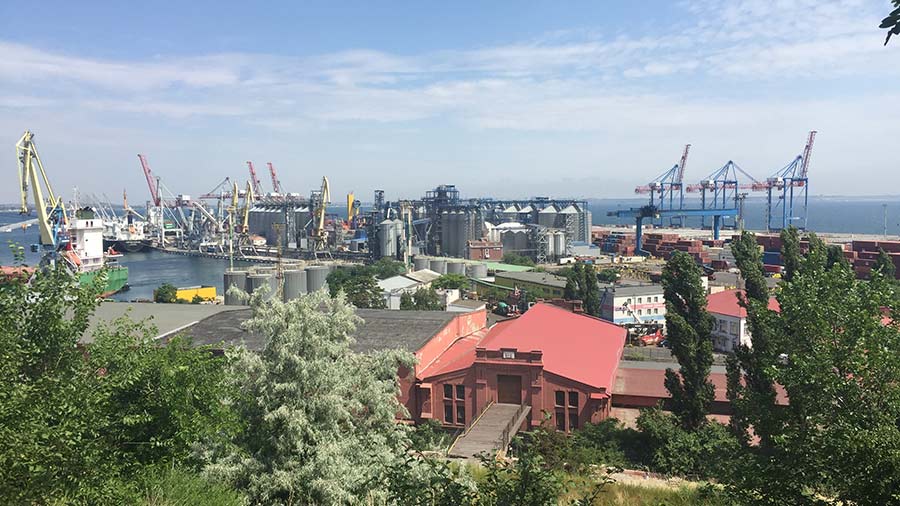Ukraine wheat harvest yields impressive but area down
 © Mike Lee
© Mike Lee Ukraine’s wheat harvest is producing impressive yields, but with fewer hectares planted as a result of the Russian invasion, there will be no record for overall tonnage this year.
Yields are on target to be among the highest Ukraine has grown, but the total wheat area is 30-40% down, either because the land is occupied by Russian forces or is unsafe to crop because of landmines.
“We are looking at a 19m-tonne wheat crop. If there was not a war on, we would be talking about an amazing 30m tonnes plus,” said agronomist Mike Lee, founder and owner of Green Square Agro Consulting, which specialises in Black Sea grains.
See also: 1 in 5 Ukrainian growers faces bankruptcy, grain boss warns
As of 4 August, about 60% of the 4.3m hectares of wheat had been cut, producing 12.5m tonnes with an average yield of 4.64t/ha.
This compares with the previous record average, set in 2021, of 4.45t/ha when Ukraine farmers produced 33m tonnes of wheat, almost 25% more than the previous five-year average.
“The underlying story is the crops Ukraine is producing, and the potential is getting better year-on-year,” Mr Lee said. “But the country’s agricultural industry is being stymied by the war.”
There is no information about what has been planted in occupied areas of Ukraine. The occupied farmland equates to about 10m tonnes of wheat that could be grown.
Since the outbreak of war almost two years ago, low prices, often below the cost of production, have become an increasing concern for Ukraine’s wheat growers. Cashflow and acquiring crop inputs are both key challenges.
This year, farmers responded by growing fewer grain crops (wheat, barley and grain maize), down from 11.4m hectares last year to 9.8m hectares for this harvest.
Autumn plantings
Farmers are committing to winter wheat and oilseed rape planting decisions now, ahead of the September-October planting period.
They are doing so amid a backdrop of uncertainty over whether Russian president Vladmir Putin will renew the Black Sea grain deal. The deal was terminated by Russia in July but is vital to keep food flowing from Ukraine – a major breadbasket – and avoid famine in some of the world’s poorest countries.
Grain exports through the Black Sea ports have stopped, and alternative routes through the shallow ports of the Danube face higher costs and logistics problems.
Mr Lee expects Ukraine’s 2023-24 crop area to fall.
“If domestic grain prices continue to remain low – and they are likely to do so under the current situation – then we expect farmers to plant less of all crops,” he says. “Why would they plant crops they will sell at a loss?”
The Ukrainian agriculture ministry said on 4 August that farmers had so far harvested 16.57m tonnes of grain, of which 12.5m tonnes was wheat.
